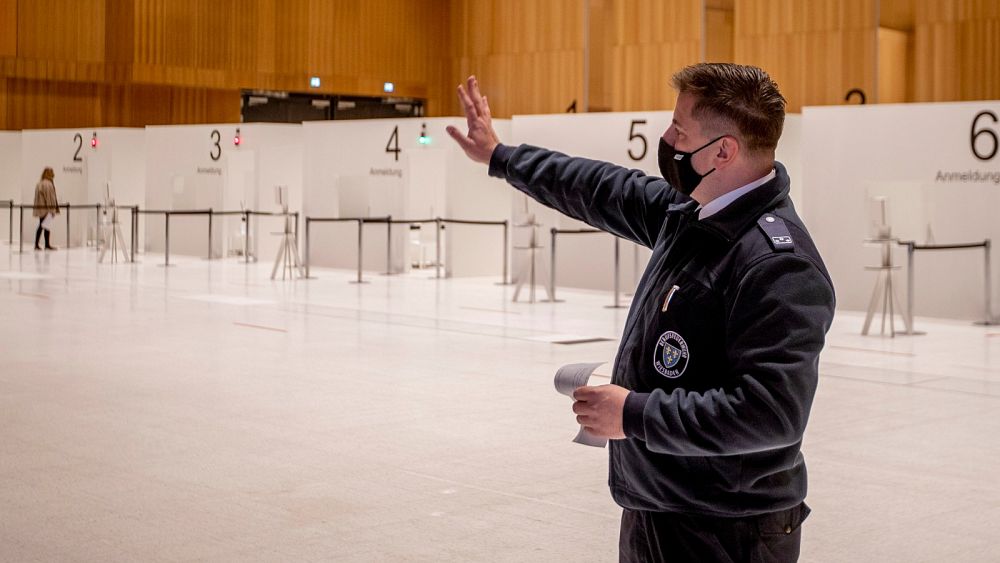The European Medicines Agency (EMA) is set to decide today whether or not to give the Pfizer-BioNTech vaccine the green light for use in the EU.
A go-ahead would pave the way for a possible start of vaccinations in Europe on December 27.
If EMA scientists conclude that the vaccine is safe, officials at the Amsterdam-based agency are expected to give conditional approval for it to be used across the 27-nation bloc.
The European Commission must still rubber-stamp the decision before the vaccine can be rolled out.
The pharmaceutical companies will also need to submit follow-up data on their vaccine for the next year.
Why so ‘late’?
The European regulator came under heavy pressure last week from countries calling for the vaccine to be granted approval for use as quickly as possible.
EMA had originally set December 29 as the date for its evaluation of the vaccine, made by Germany-based BioNTech, but moved the meeting forward after pressure from Berlin and other member states.
The EU’s approval of the vaccine comes roughly three weeks after Britain, which has started administering the jab to its citizens.
The main reason for this difference was, unlike in the US and the UK, the EU did not rush into emergency use provisions, which allow for faster approval but mean the vaccine is put into the category of unlicensed products that are only allowed for temporary use.
The EMA’s approach to COVID-19 vaccines is quite similar to the normal licensing procedure, except that it has been slightly fast-tracked. The companies must still give follow-up data and renewal will be needed after one year.
In a statement last week, the agency stressed that the vaccine would only be approved after a scientific assessment showed its overall benefits outweighed the risks it posed.
“A vaccine’s benefits in protecting people against COVID-19 must be far greater than any side effect or potential risks,” it said.
BioNTech and Pfizer offered the EU 400 million doses of the vaccine, but the bloc’s executive commission chose to buy only 200 million doses, with an option for 100 million more.
Germany’s health minister said it wasn’t only a matter of speed, but rather a question of solidarity.
“Yes, France, Germany, and the Netherlands could have undoubtedly procured, promoted and approved the vaccine on our own,” Jens Spahn told the Bundestag on Wednesday.
“But we made a very conscious decision to go down this path together at a European level, that we are stronger together. This is true in this pandemic, in everyday life, in taking care of each other, but it is also true in European solidarity.
“We are procuring this vaccine together so that all 27 (countries) have it available at the same time. We are jointly promoting the development and we are also making a joint approval in the best European spirit.”
Trust in vaccine
Now, that the major challenge of finding vaccines that work has been conquered to an extent, leaders worldwide are working on building trust in the vaccine.
Multiple surveys show that Europeans are among the most sceptical of vaccines.
A recent survey of more than 13,400 people in 19 countries found that people in Poland, for instance, reported the highest number of negative responses for whether people would get a COVID-19 vaccine.
France is also among the most sceptical, with just 59% stating that if there was a COVID-19 vaccine that was proven to be safe and effective, they would take it.
Sweden, Germany and Spain also showed more scepticism than other developed countries such as the United States and South Korea.
Emer Cooke, the new Executive Director of EMA, told Euronews: “It is a very robust assessment process involving our scientific committee, a peer review process, back and forth to make sure we have not missed anything.
“And it is at the end of that process that we would conclude whether we are satisfied that the benefits outweigh the risks and the vaccine is of high quality, high safety and efficacious.
“We are the source of the data on the product. We know more about this than anybody except the company.
“And if people are concerned, we want to do whatever we can to make sure you are happy, that you can trust the vaccine, that is our responsibility,” she said, adding that it could be a “good idea” for her to receive the jab live on TV to instil confidence in the vaccine.
Around 30,000 people were studied by companies during clinical trials, mainly adults and elderly but also patients with existing conditions.
Roll-out strategies
Each European country is in the process of preparing a roll-out strategy for the distribution of the vaccine. About 70% of the population needs to be vaccinated in order to create herd immunity against COVID-19, experts say.
Several European countries have also pledged to coordinate their vaccination strategy when authorisation is given.
A statement released by Italy, and signed by health ministers in Germany, France, Belgium, Luxembourg, the Netherlands, Spain and EU neighbour Switzerland, promised coordination of launch schedules, along with information sharing about progress.
France plans to start its initial phase in January, with nursing home residents and high-risk care workers at the front of the queue for the first batch.
Germany is looking at a similar strategy targeting the elderly, those living in care homes, and health care workers first, followed by public service staff
Temporary concerns about whether Germany had pre-ordered enough dosages to guarantee herd immunity have meanwhile been put to rest.
In addition to the 55.8 million vaccination doses it was guaranteed through the EU contracts, it has also nationally made an effort to secure another 30 million doses of the BioNTech-Pfizer vaccine, a spokesperson told media.








